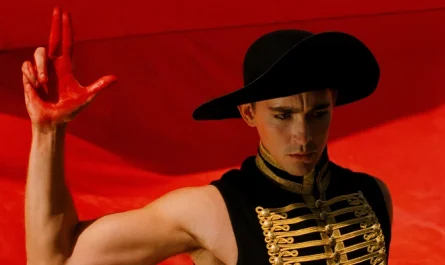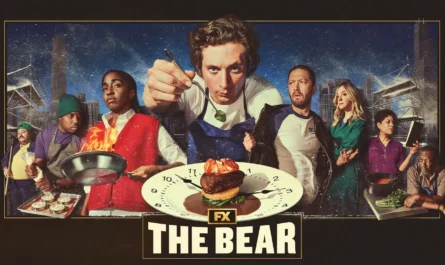The Cambridge Dictionary defines tokenism as something that a person or organization does that seems to support or help a group of people who are treated unfairly in society, such as giving a member of that group an important or public position, but which is not meant to make changes that would help that group of people in a lasting way; the Merriam Webster Dictionary defines it as the policy or practice of making only a symbolic effort (as to desegregate); and the Collins Dictionary defines it as the practice of making only a token effort or doing no more than the minimum, especially in order to comply with a law.
In contemporary words, tokenism is when someone or an institution is trying hard to seem “woke” and inclusive, yet that is nothing more than a façade to avoid getting #CANCELLED. Why would anyone get cancelled because of it? Well, if you haven’t been living under a rock since 2016, you might be aware that society has realized the constant white representation in several industries, especially the entertainment industry. These last seven years have been absolute chaos in social media with people arguing about what is appropriate and what isn’t. Not only that, but what is politically correct and what is unacceptable. While some social justice warriors may seem crazy or might be portrayed in the media as irrational, some socially aware gen-zers might be on to something. Think about it, yes, the film industry began in France and other than Bollywood, European countries and the US continue to lead the film industry and since it began, most actors are Caucasian, but not every character is.
As viewers have an increasing demand for inclusivity with speeches about why representation matters, many productions have felt forced to appear inclusive, even when they couldn’t care any less about change. Therefore, netizens began questioning such practices and opened dialogue about tokenism. Personally, as much as I want to see accurate inclusion and representation in the film industry, I want it to be genuine and so do other millennial or gen-z viewers.
Nonetheless, what is the problem with tokenism anyway? I would argue modern day consumers hate to be lied to for so long, now they can’t stand fake people. It looks like nowadays people expect celebrities and creators to be #REAL. Watchers are uncomfortable when the film industry apparently includes people of all backgrounds no matter their race, gender, sexual preference, economic status, or religious believes; when, in fact, this inclusion vacancy is only open to one or two characters/performers.
Productions use these people as a symbol of non-discrimination. However, the institution is not doing anything to change the status of disregarded minorities into a more accepting industry with opportunities for all. A perfect example is Natalie Portman, who continuously whines about award ceremonies discriminating against female directors and the film industry’s lack of opportunities for women in directing or producing roles, yet she owns a production company called, Handsomecharlie Films, where all film directors are men.






hippodrome casino london
References:
https://md.un-hack-bar.de/sKSwDEw7R2umq-KXWO0qRQ/
casino jack and the united states of money
References:
https://spinvai.com/burtonwimberly
valley view casino seating chart
References:
http://boiler.ttoslinux.org:8888/ulrikez4008334
wild horse casino az
References:
https://jataye.com/employer/best-online-live-casinos-2025-play-at-the-top-us-live-casinos/
ottawa quebec
References:
http://www.pesscloud.com/PessServer.Web/Utility/Login/LoginPess.aspx?Returnurl=https://new.72dez.ru/user/donatavgsu
the meadows casino
References:
http://vip.cengfan6.com/goto.php?url=https://kintop.ru/user/cwrictcujx
century casino edmonton
References:
http://mb.tickets.wonderworksonline.com/cart.aspx?returnurl=https://www.cool-bookmarks.win/fire-at-diani-reef-beach-resort-contained-no-injuries-reported-authorities-confirm
Den Bonus ohne Einzahlung bekommst du direkt nach der Anmeldung im Echtgeld Casino gutgeschrieben. Abonnieren Sie, um E-Mails mit Boni und Tipps zu erhalten. High Roller mit VIP-Status erhalten aber oft deutlich höhere Limits.
Turniere und viele andere tolle Aktionen sorgen dafür, dass Sie im Verde Casino online jederzeit bestens unterhalten werden und dabei sehr gute Gewinnchancen haben. In den allgemeinen Bonusbedingungen wird außerdem erwähnt, dass Spins an Slots zwar mit 100% für Umsatzbedingungen gelten, Einsätze an Tischspielen oder bei Roulette aber nur mit 15% berücksichtigt werden. Bei Freispielen vom VerdeCasino gilt übrigens die gleiche Regel. Tolles Willkommenspaket mit vielen Freispielen – der Einstieg ins Online-Glücksspiel war durch die Boni hier super spannend.
References:
https://online-spielhallen.de/vulkan-vegas-casino-test-bonus-bis-1500e/
Der Entwickler mit der lachenden Sonne ist für einige der beliebtesten Automatenspiele in Deutschland zuständig. Drei Bücher bringen dir die spektakulären Freispiele, in denen ein Bonussymbol für besonders hohe Gewinne sorgen kann. Drei Bücher auf den Walzen bringen dich in die Freispiele, in denen du dich auf ein expandierendes Bonus-Symbol freuen kannst. Türchen erwarten dich heute 100 Freispiele für den Merkur Slot Tridentia für nur 30 Euro Einzahlung! Ziehe dich in deine kuschelige Koje zurück und hol dir Freispiele und Duell-Tickets mit deinem Winter-Pass. Die Schriftrolle ist eine Wild-Scatter-Kombination und kann 10 oder 15 Freispiele starten. Abgesehen von der zentralen Funktion, während der Freispiele für 2 Spezialsymbole zu sorgen, hat der Doppelbuch-Modus natürlich auch Einfluss auf Ihren Einsatz.
Viele von diesen sind in der Demo Version vollumfänglich gratis zugänglich. Absolutes Highlight dieses Online Casinos ist für Echtgeld Spieler jedoch das Willkommensangebot. Im mycasino finden Sie eine grosse Palette an Roulette Spielen vor. Für Sie sind die Schweizer Top Casinos besonders interessant, wenn Sie Echtgeld beim Roulette gewinnen möchten. In anderen können Sie direkt im mobilen Browser kostenlos ohne Download zocken.
References:
https://online-spielhallen.de/kings-casino-rozvadov-spiele-events-e1m/
Wenn Sie mit einem Bonus ohne Einzahlung Geld gewinnen, können Sie diesen Betrag auszahlen lassen, sobald Sie den Bonus umgesetzt haben. In den meisten Online-Casinos können Sie es für alle verfügbaren Spiele nutzen – egal ob Spielautomaten, Tischspiele, Live-Casino oder Poker. Einer der beliebtesten Boni ohne Einzahlung ist der Gratis-Spielgeld-Bonus. Damit erhalten neue Spieler eine bestimmte Anzahl an kostenlosen Spins für ausgewählte Slots. Je nachdem, welche Art von Spielern ein Casino ansprechen möchte, gibt es unterschiedliche Registrierungsboni, die vergeben werden können. Viele, aber nicht alle Online-Casinos bieten einen Bonus ohne Einzahlung an. ✅ Echte Gewinne erzielen – Mit etwas Glück können Sie sogar echtes Geld gewinnen!
Wer keine Lust hat, sein Geld bei einem neuen Online Casino zu riskieren, der sucht vielleicht nach Wegen kostenlos zu spielen. Nein, nicht jedes Casino verwendet solche Codes für exklusive Bonusangebote. Die exklusiven Einzahlungsboni sowie gratis Startguthaben können für alle Casinospiele eingesetzt werden, sofern in den Angebotsbestimmungen nichts anderes vermerkt ist. In diesen Fällen sollte man einen anderen Zahlungsanbieter für die Ersteinzahlung verwenden, wenn man das Angebot beanspruchen möchte. Beachtet dabei auch, dass es oft Maximalbeträge für Gewinne aus Gratisangeboten gibt, die man sich auszahlen lassen kann. Seriöse Online Casinos haben eine gültige Glücksspiellizenz, welche berechtigt im Internet Casinospiele für Einwohner der EU anbieten zu dürfen. Die hier aufgeführten Freispiele sind immer ein Teil des Einzahlungsbonus für Neukunden.
References:
https://online-spielhallen.de/casino-bonus-ohne-einzahlung-2025-gratis-no-deposit-boni/
Code BLITZ3 für 50 Freispiele auf Sweet Bonanza, Elvis Frog in Vegas oder Gates of Olympus. Mindesteinzahlung €20 für Auszahlung. 50 Freispiele auf Royal Joker Hold and Win oder Elvis Frog in Vegas. Freispiele 7 Tage gültig.
Welche weiteren Bonusangebote derzeit erhältlich sind, verraten wir dir in unserem WettanbieterVergleichNein. Doch achte auch auf die Spieleauswahl, um sicher zu sein, dass du hier über einen längeren Zeitraum spielen möchtest. 🐬 Dolphins Pearl findest du auch oft unter den Freispielen ohne Einzahlung Aus diesem Grund stellen wir dir alle verfügbaren Echtgeldspiele im Detail vor. Viele Glücksspielfans spielen gar nichts anderes, außer Slots. Wie du vielleicht schon gemerkt hast, setzen fast alle Casinos mit Bonus ohne Einzahlung Umsatzbedingungen voraus, die beschreiben, wie oft du einen Bonusbetrag spielen musst, bevor du eineOnline Casino Auszahlungtätigen kannst. Auch die verschiedenen Arten von Boni, die du in Form eines gratis Bonusangebots ohne Einzahlung erhalten kannst, erklären wir hier und berichten dir über unsere Erfahrungen, die wir bei einigen Aktionen gesammelt haben.
References:
https://online-spielhallen.de/verde-casino-promo-code-2025-alle-bonusangebote/
Multi-Hand-Optionen erlauben es, mehrere Hände gleichzeitig zu spielen. Anfänger können bereits mit kleinen Beträgen spielen. Spieler können jederzeit von zu Hause aus spielen. Online Blackjack bietet eine der höchsten Auszahlungsraten aller Casinospiele mit bis zu 99% Rückzahlung an die Spieler. Um sicherzustellen, dass ein Glücksspielanbieter legal ist, solltest du auf eine gültige Glücksspiellizenz achten, die von der deutschen Regulierungsbehörde ausgestellt wurde.
Es bietet eine massive Spielauswahl von über 5.000 Titeln von namhaften Spieleanbietern wie NetEnt und Evolution. Das bedeutet nicht, dass sie alle anderen Bereiche vernachlässigen, aber ein Casino kann zum Beispiel für einen guten Kundensupport bekannt sein, aber eine unterdurchschnittliche Anzahl an Casinospielen bieten. Freispiele ergänzen oft den Einzahlungsbonus und bieten zusätzlichen Spielwert an Spielautomaten.
References:
https://online-spielhallen.de/hitnspin-casino-osterreich-jetzt-spielen-800-bonus/
Die Spielmechanik ist allseits bekannt, weshalb vor allem Spieler von klassischen Games Online Automatenspiele wie dieses bevorzugen. Darüber hinaus bietet die beigefügte Risikoleiter stets die Chance, Gewinne an Online Slots durch Risiko zu steigern. Eye of Horus bietet gleich mehrere spannende Vorteile, wodurch es sich gegenüber anderen Spielen im Slots Casino abheben kann. Mit 6×5 Feldern ist Gates of Olympus vergleichsweise gut bestückt und bietet somit ausreichend Spaß für Spieler im HitNSpin Casino.
Ich habe letzte Woche 25 Freispiele für den neuen Slot Madame Destiny Megaways erhalten, indem ich den Code eingegeben habe, den sie auf Facebook gepostet haben. Das ist, wo sie exklusive Promo-Codes ziemlich häufig für Sachen wie Freispiele, keine Einzahlungsboni, Reload-Boni, Sie nennen es. Was das Cashback angeht, so ist es einfaches Bargeld mit nur 5x Durchspielen, was es viel einfacher macht, es abzuheben. Alle Gewinne aus Freispielen müssen vor der Auszahlung 30x umgesetzt werden. Was die Freispiele betrifft, so erhalten Sie insgesamt 200 Freispiele (20 pro Tag für 10 Tage) an berechtigten Slots wie Sweet Bonanza.
References:
https://online-spielhallen.de/casino-online-kostenlos-gratis-spielen-ohne-anmeldung/
regle blackjack
References:
https://www.google.ci/url?q=https://www.udrpsearch.com/user/stonetable9
roulette number
References:
https://md.ctdo.de/_L5rLBgrSMiu0NyTTVpAfQ/
how many casinos are in las vegas
References:
https://maps.google.fr/url?q=https://www.folkd.com/submit/blackcoin.co/australian-online-gambling-a-comprehensive-guide//
wizard of odds blackjack
References:
https://saveyoursite.date/story.php?title=best-online-casinos-for-real-money-in-the-us-top-casino-sites
walker mn casino
References:
https://pad.geolab.space/AJpwLaiISsmddN3dVcKtFg/
xn88 app không ngừng nỗ lực để mang đến cho người chơi những ưu đãi hấp dẫn và giá trị. Các chương trình khuyến mãi đa dạng là một trong những lý do cơ bản nhất giúp chúng tôi thu hút đông đảo người đặt cược. TONY12-26
Your article helped me a lot, is there any more related content? Thanks! https://accounts.binance.com/ES_la/register-person?ref=VDVEQ78S
Your enticle helped me a lot, is there any more related content? Thanks!
Can you be more specific about the content of your article? After reading it, I still have some doubts. Hope you can help me.
Thanks for sharing. I read many of your blog posts, cool, your blog is very good.